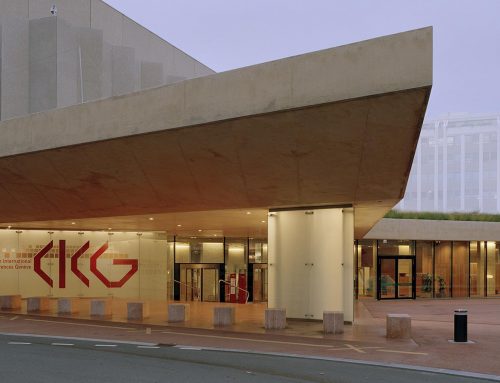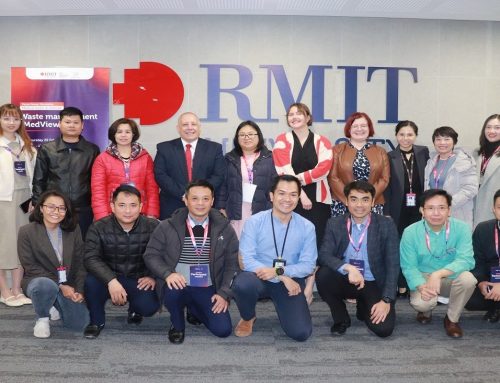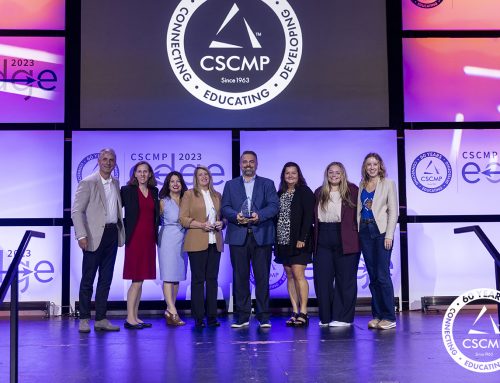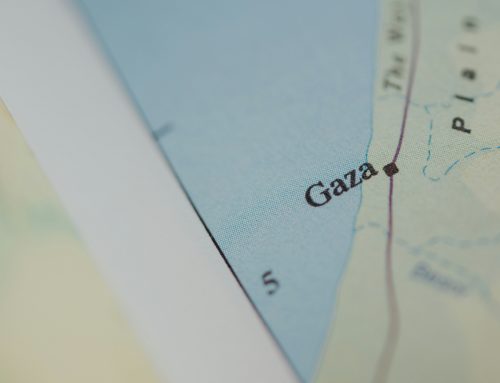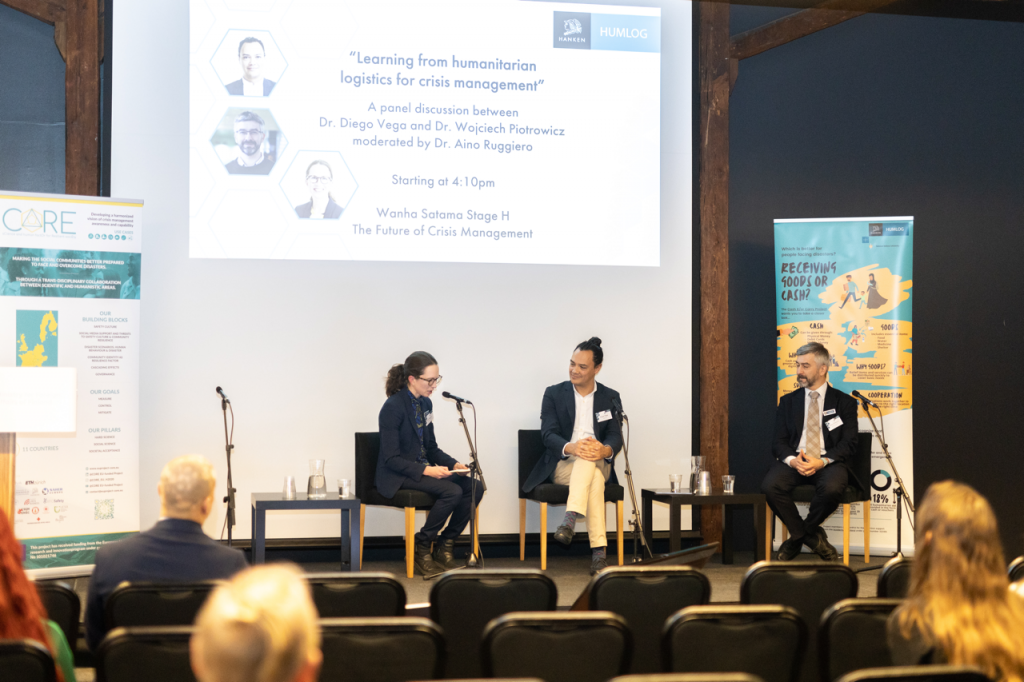
Picture Credits: Konsta Partanen
Dr. Aino Ruggiero
Postdoctoral researcher at the HUMLOG Institute
The HUMLOG Institute participated in the Crisis Management Now (Kriisinhallinta NYT) event organized by the Finnish Ministry of Foreign Affairs at Wanha Satatama in Katajanokka on the 29th of November. This was the first time the event was organized again live after the covid-19 pandemic and brought together all the key stakeholders from the field of crisis management, peace building, humanitarian aid and development cooperation, including governmental agencies, NGOs, companies and research institutes. The full day program included expert talks, panel discussions and workshops. The event was free and open to anyone interested. All the organisations present had a stand where visitors could familiarize themselves with their work and current activities. Many students also visited the event and could learn about study and work opportunities in the field, including those described at the HUMLOG Institute stand presented by Research Assistant Kieto Mahaniah, Research Coordinator Mimmi Pöysti and Doctoral Researcher Sonja Saari.
The program of the event was built around the question: How, why and where does Finland participate in crisis management and what does that mean in the current, changing security situation? A forerunner and one of the top research centers in the field of humanitarian logistics and supply chain management, the HUMLOG Institute contributed to the program via a panel discussion between the Director of the Institute Diego Vega and Associate Professor Wojciech Piotrowicz, moderated by Post-doctoral Researcher Aino Ruggiero, titled “Learning from humanitarian logistics for crisis management”.
Humanitarian logistics and crisis management: differences and complementarities
To put it simple, Diego Vega described in the opening of the panel, humanitarian logistics is about moving goods from various suppliers via NGOs to beneficiaries. While the practice of providing humanitarian aid is not a new activity, humanitarian logistics as an academic discipline is a young field of science established in the aftermath of the 2004 Asian tsunami, with the objective of supporting the work of humanitarian organisations through academic research. The HUMLOG Institute, built in cooperation with the National Defence University (NDU) and hosted by Hanken School of Economics, became one of the first research institutes in the field worldwide. With its 15th anniversary approaching next year, the HUMLOG Institute has conducted numerous research projects with and for NGOs and UN Agencies, including the Global Logistics Cluster, the Red Cross, Médecins Sans Frontières, Oxfam, and Finn Church Aid, among others, together with research partners from the field. In the recent years, the Institute has also participated in an increasing number of EU-projects, involving humanitarian organisations or that tackle humanitarian issues.
In the original sense of the term, Diego Vega explains, humanitarian logistics means logistics for humanitarian aid in line with the humanitarian principles of transparency, impartiality and neutrality. This view does not cover crisis management per se, but since covid-19 these boundaries are betting blurred and humanitarian aid is changing its meaning. Wojciech Piotrowicz explains the developments that have led to these changes. Until the 2015 refugee crisis most of the crises took place from the European perspective “far away”. Since the 2015 refugee crisis, followed by the covid-19 and the war in Ukraine, the crises have come closer and entered the European borders. Now those who need help and assistance, the refugees fleeing the war in Ukraine, are inside the European borders. During the covid-19 pandemic when national crisis management systems failed or were unable to cope, there was a need for external assistance within various European countries, which traditionally falls in the realm of humanitarian assistance or humanitarian logistics. But according to the traditional definition, this is not called humanitarian aid. However, Wojciech Piotrowicz explains, if we adopt a broader view on humanitarian assistance, that is covering different kinds of assistance and support to people in times of crises, we come closer to the concepts of crisis management, crisis preparedness, resilience, and societal resilience – how society, from individual citizens to private, public and civil society organisations are prepared to respond to crises.
According to Diego Vega, the overlap between these two, humanitarian logistics and crisis management, becomes visible especially in the preparedness phase: a lot of humanitarian actors have developed preparedness systems to be faster when they need to respond, and they have large warehouses around the world with pre-positioned stocks of relief items, so do actors in different countries, including both citizens and organisations, prepare themselves with emergency supplies. In other words, the help provided by state actors and what NGOs offer is blurring nowadays as we have seen, for example, in how NGOs supported the governments in responding to the covid-19 crisis around Europe.
Lessons learnt from researching the war in Ukraine and crisis preparedness
Wojciech Piotrowicz has been researching the conflict in Ukraine already years before the beginning of the full-scale Russian war of aggression in February 2022. The conflict started in 2014 with the annexation of Crimea remaining after that as a frozen conflict. Already in 2014–2015 the first wave of immigrants moved from Ukraine: including millions of people moving to Russia, to western Ukraine as well as internally displaced populations (IDPs), or abroad for economic reasons. The Academy of Finland project, led by Wojciech, Cash and/or carry: The challenges and modalities of delivering aid in conflict zones has been focusing on the conflict in Ukraine having as its aim to develop a conceptual framework for selecting effective delivery modalities for humanitarian aid in conflict zones. Wojciech, with a team of researchers, has been investigating what aid mode, i.e. prepositioned goods or cash for people to buy goods themselves, would be beneficial. The conclusion was that both aid modes are needed depending on the situation. Although cash donations are generally preferred over material donations, according to Wojciech, there is still place for goods too; it is crucial to find out what is needed, when, where and by whom. For example, a Finn wanting to donate goods for Ukrainians can consult the website of the Ukrainian association in Finland (https://autaukrainaa.fi/) on what goods are needed right now.
The ongoing war in Ukraine differs from other recent conflicts from a demographic point of view most refugees being women, children, and elderly people. Moreover, another new element has been a high number of pets moving along with the Ukrainian refugees: dogs, cats and other animals, requiring eventually policy action to enable pets crossing borders. Wojciech also points out another interesting phenomenon involving material donations for Ukrainians: while donations per se can be considered a token of solidary and support from the side of donors, in the case of the war in Ukraine, this has manifested in concrete terms through messages of support written in the packages and parcels of goods for Ukrainians.
In an EU H2020 project (under grant agreement No 101021746) CORE (sCience & human factOr for Resilient sociEty) Wojciech and his team, on the other hand, are researching crisis preparedness in the sphere of the security of supply. In line with a whole-society-approach, citizens in Finland are considered relevant security actors and are expected to cope on their own for 72 hours and thus secure the supply of essential livelihoods through their home preparedness kit in the case of an emergency (see https://72hours.fi/). Another topic that CORE investigates is cascading effects of disruptions and emergencies, which are now visible in the current energy crisis: electricity being a critical element for the functioning of society, any disruption in the supply chain impacts all spheres of life.
Societal problem solving and expert contributions to the field
Societal problem solving is at the heart of research at the HUMLOG Institute; as Diego Vega explains, it is conducted with and for humanitarian organisations. Some of the recent projects have focused on strategy making in humanitarian organisations. For example, a team of researchers reviewed the MSF movement’s response to covid-19 and based on that, the MSF is now building guidelines and new organizational structures for responding more efficiently to pandemics in the future. With the Danish Red Cross, a smaller project focused on strategies for localization. Moreover, the HUMLOG Institute provides research-based training; for example, for the UNHCR officers training in logistics. A recent example HUMLOG collaborations is its participation, together with a group of students, in the Heureka Science Centre exhibition, Facing disaster (Katastrofien keskellä), as a partner organisation. The founding member of the Institute, Professor Gyöngyi Kovács, was recently supporting the International Red Cross flood response in Pakistan. So, besides scholarly and expert work, researchers also serve as practitioners by taking part in humanitarian missions.
As Wojciech Piotrowicz points out, expert contributions to field work in disaster and conflict zones also contribute to crisis preparedness – building networks, gaining experience, and learning to be better prepared to respond in the future – further highlighting the link between humanitarian logistics and crisis management. Historically now it is a particularly interesting moment in time to discuss the difference between the two, as Diego Vega explains, humanitarian aid was born in the aftermath of a war, the battle of Solferino in 1859, when crisis management systems did not exist, to help the victims of war. With the war in Ukraine and the active conflict in Europe we seem to have returned to the early version of humanitarian aid. However, this requires re-thinking how we operate and stand in the light of principles of humanitarian aid, neutrality in particular, while supporting Ukraine: who can be helped and under which conditions. Both Diego Vega and Wojciech Piotrowicz see the discussion around rethinking the humanitarian system and crisis management in a more integrated way as an opportunity: the triple nexus taking place in the academia. As the slogan of the event says: standing together to solve conflicts and build peace.
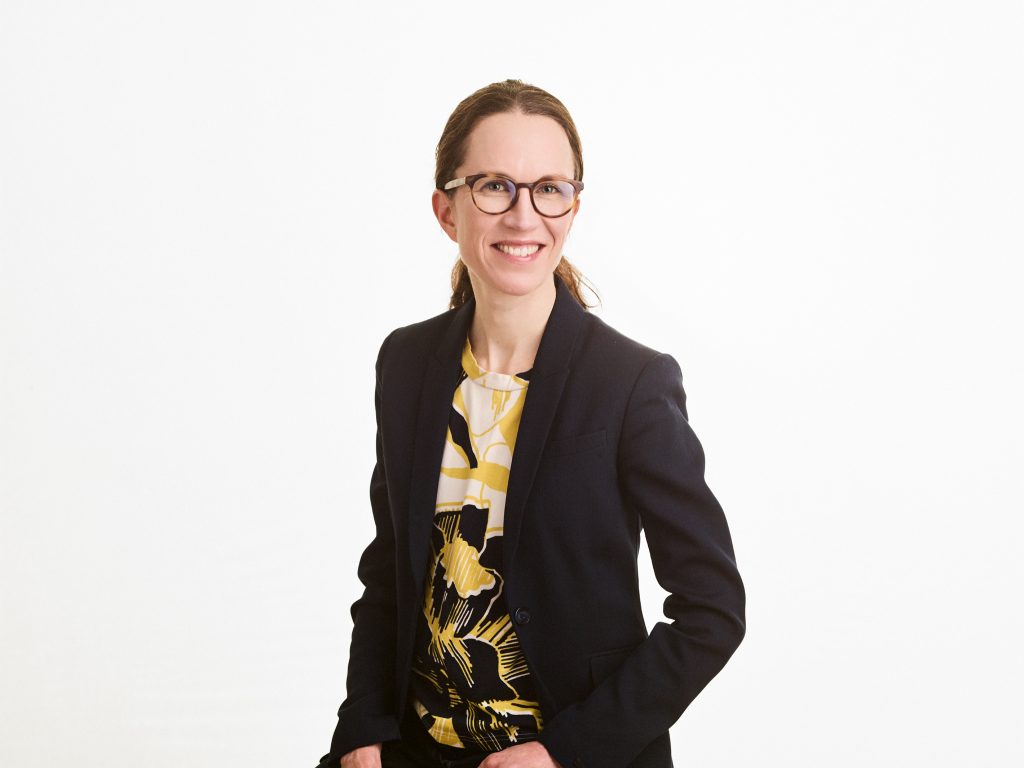
Dr. Aino Ruggiero works as a postdoctoral researcher at the HUMLOG Institute. Her background is in crisis communication. Her current research focuses on crisis preparedness in the sphere of security of supply, including citizens’ home preparedness. Moreover, she is researching public communication of humanitarian aid actors in the case of the war in Ukraine.

